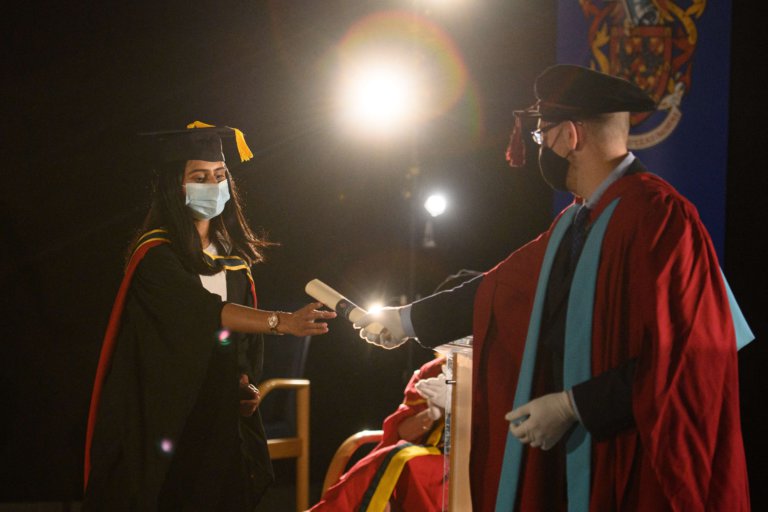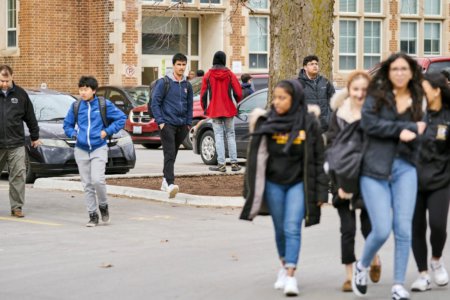
The UK is one of the best study destinations in the world for higher education. They have a host of world-class universities that offer bachelor’s, master’s, PhD programmes and more — all while being home to a vibrant, diverse student community.
Of course, this means that many students who have completed their first degree in a UK university want to extend their stay in the country. Many choose to stay and work under the Graduate Route, but just as many take on a master’s or PhD programme after their studies. According to the Office for National Statistics, 59% of students who remained in the UK after graduation went on to further study after their first course between 2015 and 2020.
If you have received an offer for further study at a UK university, congratulations! You will need to submit another UK visa application to extend your stay. It isn’t a tricky process, but one that necessitates an awareness of all the deadlines and documents.
Here’s a nifty guide on the UK visa application process for international students looking to continue their studies.

You can qualify for a student visa extension if you’ve received an offer to study a course at a higher level than your previous course. Source: Oli Scarff/AFP
Am I eligible to extend my student visa?
You are eligible if you:
- Are in the UK on a Student visa. For example, you may have previously been on a Tier 4 (General) student visa.
- Have a Confirmation of Acceptance for Studies (CAS) that shows you have an unconditional offer from a university for a programme. This can either be for a new programme or one you are extending, such as if you need to take resits.
- Show that your new programme will be at a higher academic level than your current one. This is called the “academic progression requirement.”
You can prove the third point by including the formal award of your completed degree in your UK visa application.
The only exemptions to the academic progression requirement are if:
- You need to resit your exams or repeat a module for your current programme;
- You’re applying for a PhD or similar doctoral qualification that you started studying during your last student visa with your current university;
- You’re applying for the first time to a new institution to complete a course you started at a different institution that lost its student sponsorship license;
- You’re applying to undertake a role as a Student Union Sabbatical Officer;
- You’re studying medicine, veterinary medicine and science, or dentistry and are taking an intercalated bachelor’s or master’s course;
- You’re applying to extend your stay after undertaking a study abroad programme or work placement as part of your course.
Whatever it is, it’s best to check with your university if you are planning not to take a programme that satisfies the academic progression requirement.
When can I start my UK visa application?
The earliest you can apply is three months before your new course start date. Take note that you must apply before your current student visa expires and within six months of getting your new CAS.
The gov.uk website stipulates that your new course has to begin within 28 days of your current visa expiring.

The UK has some of the best universities in the world for undergraduate, masters and doctorate programmes. Source: Shaun Curry/AFP
What documents do I need to extend my student visa?
Extending a student visa isn’t too different from when you first applied. You need:
- A CAS from the university you’re planning to pursue your studies at. You may find this term familiar — you would have needed it for your first student visa application.
- Financial evidence that you have enough funds to support yourself during your studies.
- Your passport, current biometric residence permit (BRP).
You may also need:
- A police registration certificate that shows your current address, passport and visa details.
- An ATAS certificate. Your university will indicate if you need one to study your new programme.
- Your previous qualification certificate(s) or transcripts.
Any other supporting documents you may need will be made clear during your application process.
Do I have to pay any fees?
Yes. you will have to pay:
- 475 pounds to extend your visa,
- The immigration healthcare surcharge (check how much you’ll have to pay here),
- 19.20 pounds to have your biometric information (fingerprints and your photo) taken.
Once you have all your documents and finances, you can begin your online UK visa application process here. It will take around eight weeks for you to receive a decision on your application. Make sure that you don’t travel outside the UK in the meantime.
If your application is successful, you’ll either get a new BRP or digital immigration status, depending on the method in which you gave your biometric information.
For more information, check out the gov.UK guide on extending your student visa here. Good luck!










